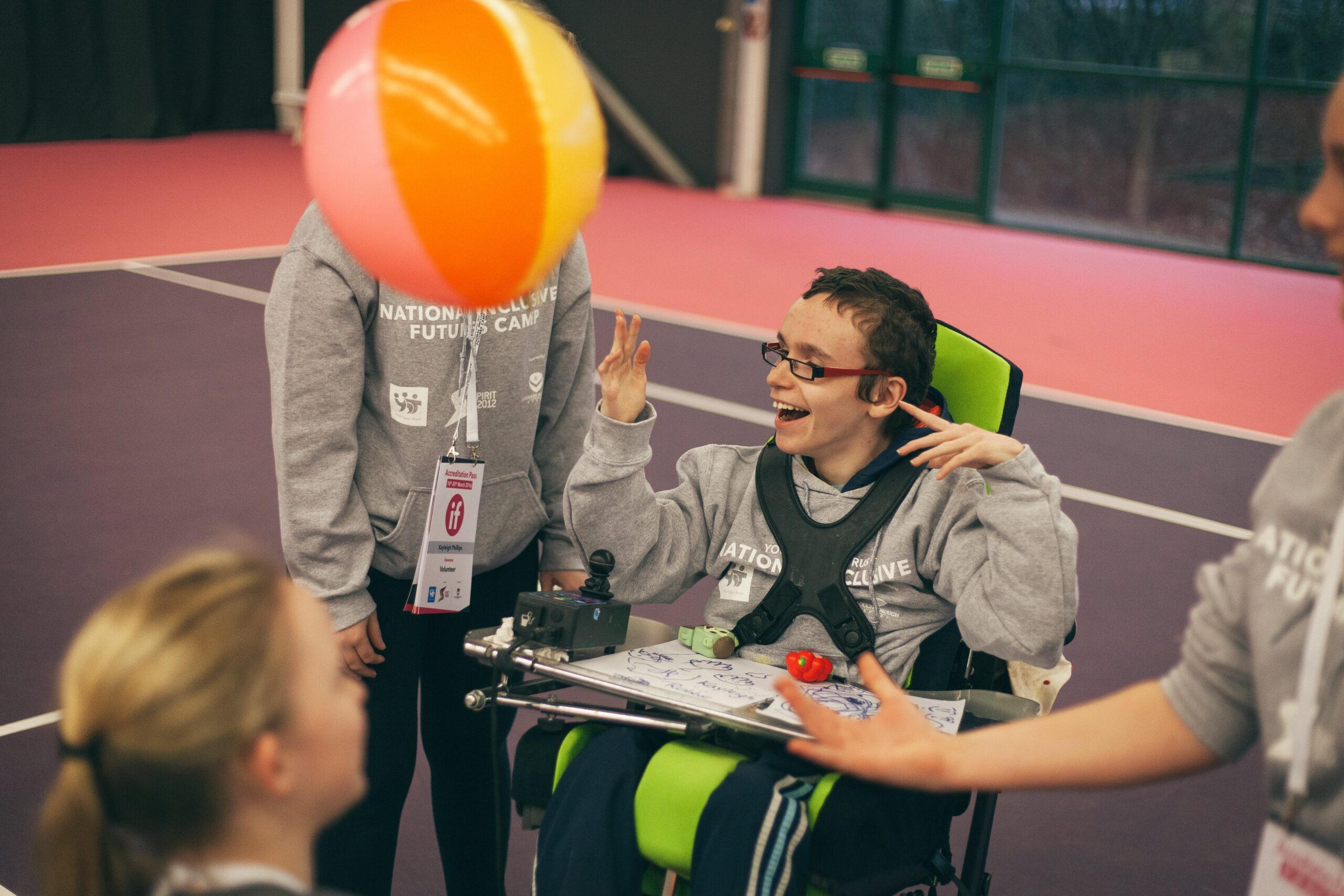
Inclusive Futures
What we learned from a leadership and volunteering programme for disabled and non-disabled young people to support and deliver physical activity in schools and their community.


This report was produced in 2015 by LKMco, now the Centre for Education and Youth (CfEY), on behalf of Spirit of 2012 and Youth Sport Trust to evaluate the Inclusive Futures programme.
Inclusive Futures was a unique leadership and volunteering programme which aimed to give young people aged 14-19 years old, with and without disabilities, the opportunity to work alongside each other to support and deliver inclusive sport and physical activities in schools and communities. The programme focused on promoting inclusion, volunteering and wellbeing and inclusive volunteering, reducing inactivity and increasing physical activity, empowering young people and developing their life skills.
KEY FINDINGS
Overall impact
- Inclusive Futures achieved all its intended outcomes and much of this impact is profound and deeply important to the young people involved. Youth Sport Trust was successful in leading a programme in a range of geographical locations which was delegated but co-ordinated.
- Although the focus on inclusivity, wider wellbeing, physical activity, and volunteering was ambitious, the programme was remarkably successful. Central to this success was the fact that disabled and non-disabled young people were brought together with a fun and positive purpose.
- More case studies would have helped with understanding more about how the settings changed and developed their understanding of inclusivity and youth-participation. However, the settings were unanimously positive on the programme overall.
Making evaluation inclusive
- Lighter touch evaluation, less data collection, and shorter and more simple surveys would help make the programme more inclusive.
- Case studies should have a more central role in future evaluation to ensure that young people struggling to access written surveys are fully included.
Developing inclusive sport volunteering for young people
- Better quality, regular, inclusive volunteering opportunities can be achieved by building partnerships with other volunteering and sports organisations in each region.
- A variety of activities which are engaging and inclusive and don’t go on for too long should be on offer at all times.
- Create opportunities to share best practice across regions, for example by buddying up volunteer co-ordinators so they can support each other, or by using an online forum to share ideas.
- Provide a wide range of ways to engage schools and ensure careful co-ordination between all stakeholders, particularly NGBs.
- Review budgets where possible to ensure that Inclusive Futures events have appropriate equipment and transport facilities.
- Consider extending the lower age boundary to below 14, and the upper limit to beyond 19 to engage volunteers before external exams and study take up too much bandwidth, and so that older volunteers can progress on completion of the programme
